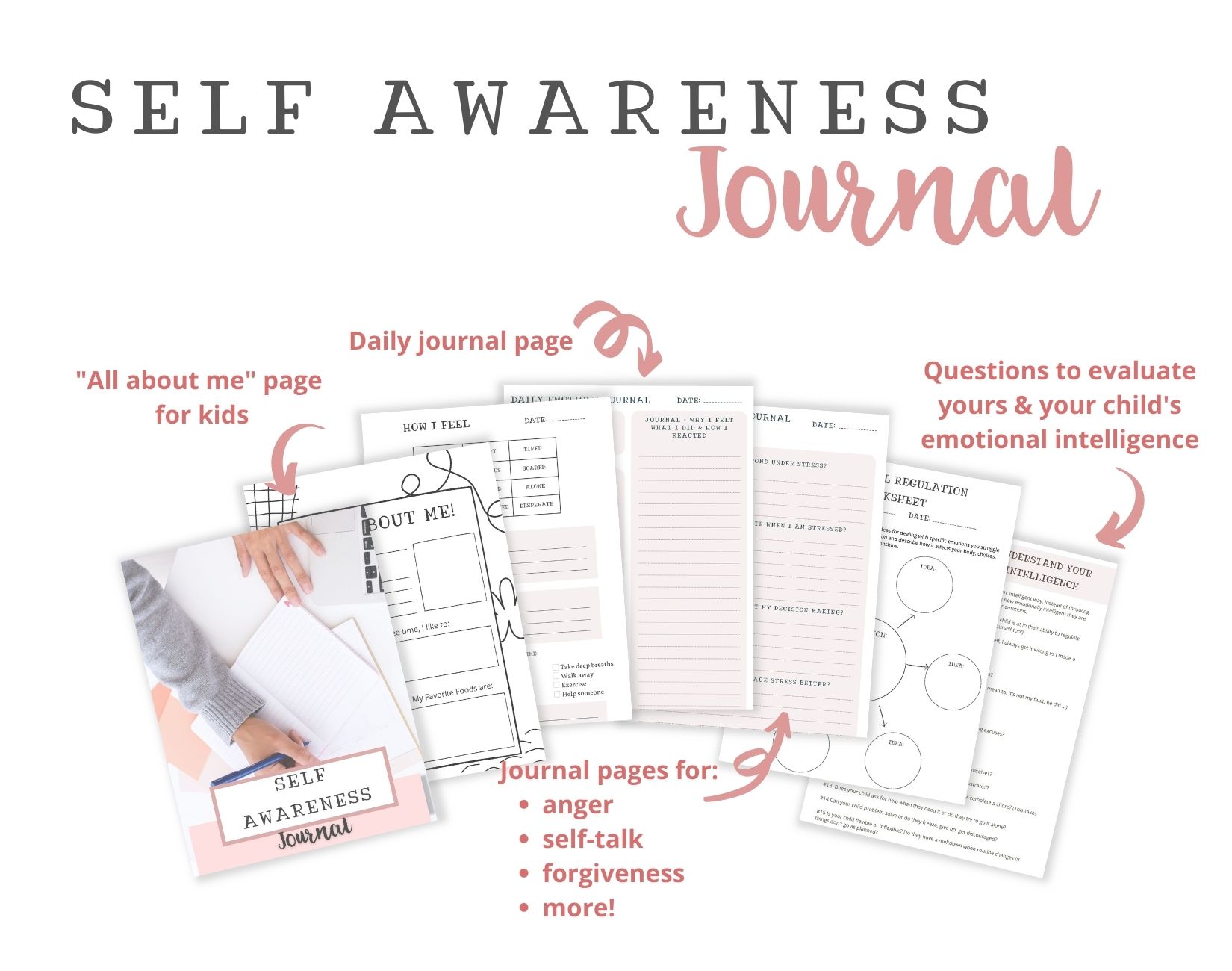How to Develop Self-Discipline

We all have times where we just don’t feel like doing something. In that moment you can choose to go with the flow and not do said thing, or you can exercise self-discipline and do it.
We all know what we should be doing, but we don’t always have the self-discipline to actually do it.
What is self-discipline?
Self-discipline is the ability to push yourself forward, stay motivated, and take action, regardless of how you’re feeling physically or emotionally.
It’s aligning your actions with your thoughts and goals, even when it’s challenging, or you don’t feel like it.
(I’m practicing self-discipline as I write this because I’d rather be sewing today :))
How to develop self-discipline
Now that we know what self-discipline is, let’s talk about how to get it!
Pray for it
God gave you the ability to master yourself. He gave the Holy Spirit to help you have self-control (Galatians 5:23).
He wants you to take charge of yourself, through His power, and regain control of your life.
It is His will for you to have self-discipline, so pray for it and believe that He will work “in you both to will and to do of His good pleasure” (Philippians 2:13).
Surrender your will
Most times we struggle to discipline ourselves to do what we know we should because our wills are simply not aligned with doing what we know we should.
Our feelings and inclinations are pulling us in one direction, and what we know we should be doing pulls us in another. Our will (power of choice) decides which way the tree falls.
When we surrender our will to God – “Not my will, but Thine be done, Lord” – God gives us power to choose what is right.
Then the words of the Psalmist become ours: “I delight to do Thy will, O my God: yea Thy law is within my heart” (Psalm 40:8).
Once we’ve prayed and surrendered, we can begin cooperating with God by doing some simple things:
Start small
Instead of diving into a heavy goal or task that requires large amounts of self-discipline, start by setting a small goal for yourself that will be easy for you to accomplish – like making your bed every day.
And then, do it – even when you don’t feel like it or when you’d much rather be doing something else. (You may need to surrender multiple times along the way!)
Getting small things done will give you a sense of accomplishment and boost your confidence.
Practice
As you practice self-discipline in the small things, you will become used to the feeling of going against your inclinations and you will come to enjoy the satisfaction of getting things done.
Then, you can choose to challenge yourself in bigger ways and strengthen the muscle of self-discipline.
The bottom line of self-discipline is this:
Learn to do by doing.
Related: Time management for Christians
Know your why
Know why you need to do what you need to do. Write it down somewhere to remind you.
“I want to do (this task) so I can feel good at the end of the day, and achieve my goals.”
“I want to (create this new habit) so I can grow myself, and do a better job of what I do.”
Knowing why you want to do things will help you when those feelings of “I don’t feel like it” hit.
Connect with the pain of not changing
Pain is a great motivator. Take a look at what your life will be like if you don’t learn self-discipline.
Connect with some of the negative effects of not doing the things you know you need to do, but aren’t.
- I’ll never grow
- I’ll be stuck in the same situation
- My home will remain chaotic
- I’ll never advance my career or achieve anything in life
- I’ll never build the relationship with God that I want and need
- I’ll continue living with shame
Eliminate distractions and obstacles
Figure out what derails or distracts you and create strategies to overcome them.
- Leave your phone in another room.
- Set a timer to help you stay focused.
- Use a habit tracker to help you stay motivated.
- Break tasks into smaller bits to eliminate paralyzing overwhelm or procrastination.
- Prioritise your life.
- Simplify your life.
- Determine a set time for checking your social media.
Related: How to stop procrastinating
Practice self-awareness
Self-awareness is the foundation of self-discipline. Regular introspection and reflection or practices like journaling can help you better understand yourself, and enable you to make conscious changes that strengthen your self-discipline.
It will help you identify the things that hold you back or trip you up, so that you can stop allowing them to get you off track.
Related: How to develop self-awareness
Purchase the self-awareness journal and begin understanding yourself better!

Reward yourself
Tell yourself, “Once I’ve done (xyz) I will sit down and read/make myself some tea/lie down.”
Rewards don’t have to be expensive – they can be simple things that you enjoy doing.
Instead of doing those things (the things you want to do) first, do the “undesirable” chore and then reward yourself afterwards.
This is a simple but effective way to build self-discipline.
I always told my kids: “Do what you have to do before doing what you want to do.”
One caveat to this: this needs to be within reason because as a mom you will always have things to do. That’s why I recommend planning your life so that you can manage all of the things and yet still have time for yourself.
Related: How to prioritise your life
Related: 10 Best planning tips
Step out of your comfort zone
Try doing something new – tackle a new hobby, have a difficult conversation, start a new exercise program.
Stepping out of your comfort zone bolsters your mental fortitude and adaptability.
As you face the insecurity of feeling out of your depth, it promotes growth and enhances discipline.
Facing the challenge of dealing with the desire and inclination to get back to your comfort zone, will give you opportunity to practice self-discipline.
Take charge of yourself
Taking charge of yourself is about having boundaries with yourself – reigning in your feelings and inclinations and doing what needs to be done instead.
See your feelings and inclinations as a child needing the direction of a parent. And then be the parent to yourself.
Take charge of your feelings and inclinations, and remind yourself:
- why you need to do (xyz)
- what your life will be like if you don’t do (xyz)
- what your life will be like if you do do (xyz)
Then, set yourself a time limit and reward yourself when you’re done.
Self-discipline is vital to making changes in your life and achieving life goals, and affects your personal growth, success, mental and emotional health, and overall sense of well-being.



Clarisa Mann | 13th Nov 23
Such a helpful site
Jennifer Lovemore | 13th Nov 23
Glad you find it helpful! 🙂